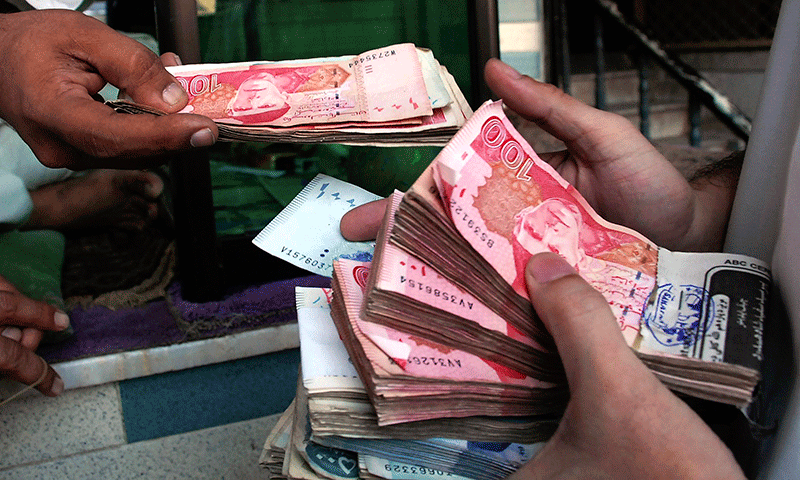
KABUL: In the prevailing view of Afghan history, King Habibullah Kalakani was an illiterate highway robber who toppled a reformist monarch in 1929 and spent nine despotic months on the throne, brutally uprooting all traces of modernisation, before he was captured by the royal army and hanged in Kabul.
But in Afghanistan, a country with a bloody tradition of tribal warfare, fierce resistance to foreign conquerors, and warlords who reinvent themselves as statesmen, even long-dead bandit kings have fan clubs.
The case made by Kalakani’s supporters, mostly activists from his ethnic Tajik minority, is that he was a pious Muslim and social Robin Hood whose horror of rapid modernisation —epitomised by photos of the previous king’s wife wearing Western clothes on a trip to Europe —was shared by many Afghans at the time.
For 87 years, Kalakani’s remains have lain in an unmarked spot below the majestic hilltop mausoleum of the country’s ethnic Pashtun dynasty, including King Nader Shah who ordered him executed. Now, a group of Tajik leaders and scholars are demanding that he be dug up and moved to a more respectful setting in the capital.
The campaign has not sprung up on a nostalgic whim. It is in part an effort to counter the reburial of King Mohammed Daoud Khan, who was assassinated during a communist takeover in 1978. Khan’s body was discovered in a mass grave in 2008, and the following year, on orders of then-President Hamid Karzai, he was reburied and given a state funeral.
It is also part of an ethnic struggle bedeviling the current national unity government, in which power is shared by President Ashraf Ghani, an ethnic Pashtun, and chief executive Abdullah Abdullah, who ran against Ghani for president in 2014 with strong support from ethnic Tajik political groups.
Daoud Kalakani, a member of parliament, heads a group that has asked the government to allow Habibullah Kalakani’s final resting place to be upgraded like Daoud Khan’s. He said the long-dead king, known by the disparaging nickname Bacha-i-Saqao, or “water-carrier’s son”, should receive “the same degree of respect” as Daoud Khan. The group has threatened to stage mass protests if there no official response on two weeks.
Another supporter, university scholar Omar Ahmad Parwani, said settling the matter will help bring national reconciliation and resolve an historical grudge. He complained that Ghani had given the title of “national martyr” to a ruthless ethnic Hazara militia leader who died two decades ago, but was not willing to honour “a Tajik [emir] who belonged to all of Afghanistan”.
The cause is also being championed by some former Tajik militia commanders, especially in the Shomali Plain north of Kabul where Kalakani was born. In an email, supporters said they had been snubbed when they took their petition to Ghani’s office, but were more sympathetically received by Abdullah.
“Dr Abdullah said this was high on his list,” said Tahir Qadiry, a spokesman for Attah Mohammed Noor, a powerful Tajik governor whose Jamiat-i-Islami party has been putting pressure on Abdullah to bring their demands to Ghani, including the Kalakani reburial.
On Wednesday, Abdullah met with Ghani to discuss a number of issues that caused a public rupture between them earlier in August. On Thursday, Kalakani’s portrait suddenly appeared on a wall inside the defence ministry, where Ghani presided over a ceremony for Afghanistan’s independence day marking a 1919 treaty with Britain. Visitors said it was hung next to a portrait of Daoud Khan.
Kalakani’s supporters exulted over this sign of his official rehabilitation, but the issue has added a new source of ethnic vitriol to Afghan social media. Some Tajik websites call Kalakani a hero and juxtapose his images with those of Ahmed Shah Massoud, the iconic Tajik anti-Taliban commander who was assassinated in 2001. Some posts on these sites mock Pashtuns with vulgar slurs.
But posts by some Pashtuns and others denounce Kalakani as a brute. “He was a misogynist and a backward criminal,” one critic tweeted, noting that he had shut down all girls’ schools during his brief reign. Others called him a “stain on our recent history” and compared him to the late Taliban leader Mohammad Omar.
On Friday, on the hilltop crowned by the royal tombs of Nader Shah and his son, King Mohammed Zahir Shah, a guard described Zahir Shah’s reign from 1933 to 1973 as a time of peace and stability, and he dismissed the movement to memorialise Kalakani as a ploy by Tajik leaders “to advance their own interests”. There is no difference between Kalakani and Mullah Omar,” he said.
By arrangement with The Washington Post
Published in Dawn, August 23rd, 2016









































